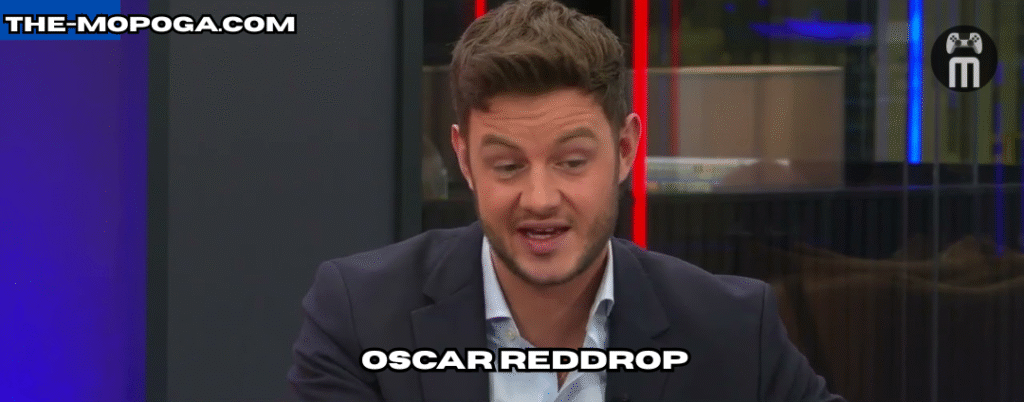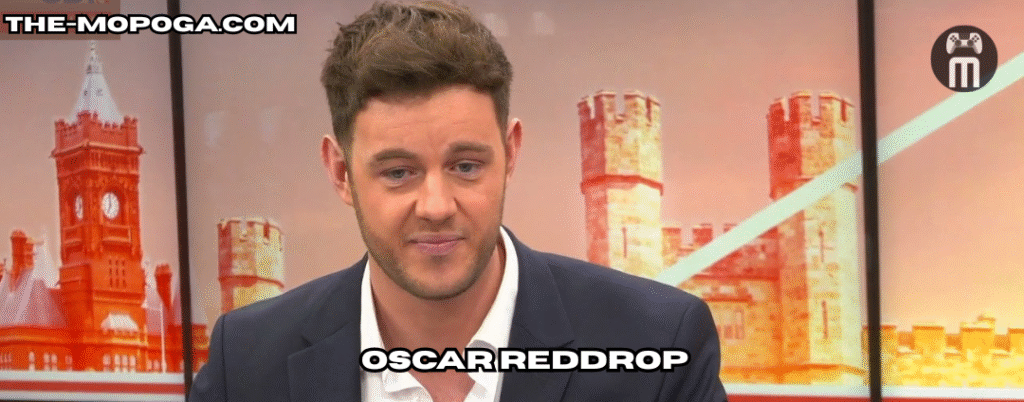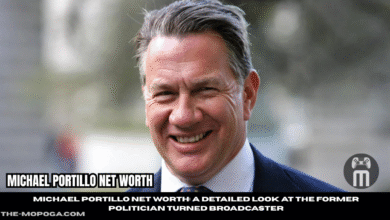Oscar Reddrop is a British political adviser and media commentator who has worked at the intersection of government, law, and public debate.
Although not as widely recognised as elected officials, he has left an imprint on UK political communication and on discussions about the legal system and media standards.
This comprehensive article explores what is verifiably known about Reddrop, the importance of his work, and the broader political environment that makes his career noteworthy.
Introduction: Why Oscar Reddrop Draws Attention
Interest in Oscar Reddrop surged after he served as a Special Adviser (SpAd) to former UK Prime Minister Boris Johnson.
In the UK, Special Advisers occupy a unique position: they are political appointees rather than permanent civil servants and therefore play a key role in shaping government messaging and strategy.
After his time in Downing Street, Reddrop began appearing frequently in British media, offering sharp analysis on legal policy, sentencing reform, and media impartiality.
His ability to transition from behind-the-scenes strategist to public commentator illustrates how advisers can influence national conversations without ever running for office.
Early Life and Education
Public details of oscar reddrop personal background remain minimal—an intentional privacy common among political advisers.
What is confirmed is that he studied at the University of Bristol, a leading UK institution known for producing graduates who enter law, politics, and public service.
Beyond this, reputable sources have not documented his date of birth, family history, or upbringing.
Rather than being unusual, such discretion aligns with the tradition of advisers maintaining a low profile while focusing on their professional responsibilities.
Understanding the Role of a Special Adviser
To appreciate oscar reddrop career, it helps to understand the Special Adviser position itself.
- Definition – A Special Adviser is a temporary political appointee who provides strategic advice, communications guidance, and policy input to ministers or the Prime Minister.
- Responsibilities – Duties range from crafting speeches and handling media relations to offering political analysis that career civil servants, bound to neutrality, cannot provide.
- Impact – SpAds often serve as the bridge between the government’s political priorities and the impartial civil service, ensuring the administration’s agenda is communicated effectively.
This background explains how someone like Reddroscar reddrop op could influence public policy and media messaging without holding elected office.
Career Path Before Number 10
Before joining the Prime Minister’s team, oscar reddrop worked in roles related to political research and communications.
Reports indicate he gained experience as a parliamentary researcher and communications officer, positions that demand strong analytical skills and a deep understanding of legislative processes.
Such early roles are typical stepping stones for future advisers: they provide exposure to policy debates and build networks that later support work at the highest levels of government.
Serving as Special Adviser to Boris Johnson
oscar reddrop most prominent government role was as a Special Adviser to Prime Minister Boris Johnson.
During Johnson’s tenure, advisers faced a demanding political environment that included:
- Negotiations over Brexit implementation
- A global pandemic and its economic consequences
- Intense media scrutiny of Downing Street communications
While specific day-to-day details of oscar reddrop work remain confidential—as is customary for SpAds—he was known to contribute to strategic communications and policy messaging at a time when public trust and political stakes were high.
Transition to Media Commentator

After leaving government service, oscar reddrop increasingly appeared in the public eye as a political commentator.
He provides analysis for television, radio, and online platforms, including interviews with GB News and contributions to political podcasts.
His media work focuses on topics where law, politics, and public perception intersect.
os car reddropinsider perspective and willingness to criticise institutions make his commentary compelling to audiences interested in how government decisions are explained—and sometimes spun—to the public.
Key Themes in oscar reddrop Public Statements
Sentencing Guidelines and Judicial Policy
oscar reddrop has been outspoken about proposals to require judges to consider a defendant’s background and ethnicity when determining sentences.
He famously described such ideas as “crazy,” arguing that they could undermine the principle of equality before the law.
This position has sparked debate among legal experts and civil rights advocates.
Media Impartiality
He has also criticised the BBC, claiming it has failed to uphold editorial impartiality in coverage of major international conflicts.
Given the BBC’s role as a publicly funded broadcaster, these allegations fuel ongoing conversations about trust and bias in journalism.
Political Communication
Drawing on his Downing Street experience, oscar reddrop frequently comments on how governments craft narratives, handle crises, and communicate with the public.
He highlights how strategic messaging can shape policy outcomes as much as the policies themselves.
Influence on Public Debate

oscar reddrop mix of government experience and media engagement allows him to influence conversations on:
- Judicial fairness – By questioning sentencing reforms, he contributes to debates on how justice systems balance equality and social context.
- Media trust – His criticisms of established broadcasters resonate with audiences concerned about bias.
- Government transparency – He provides an insider’s view of how political messaging works, fostering a more informed electorate.
Supporters see him as a principled voice challenging entrenched institutions; critics argue his positions can be polarising.
Either way, his commentary ensures key issues remain in the national spotlight.
Comparison with Other Special Advisers
Many Special Advisers finish their government service and return quietly to private roles.
oscar reddrop , by contrast, has stepped into a public-facing career, similar to figures like Alastair Campbell or Dominic Cummings, though on a smaller scale.
This move highlights how the adviser role can serve as a springboard to broader influence in political discourse.
Privacy and the Limits of Public Knowledge
Despite increased media visibility, oscar reddrop keeps his personal life private.
Speculative websites sometimes claim to know his age, relationships, or net worth, but none of these claims are substantiated by reputable sources.
This privacy reflects a professional choice and the fact that, unlike elected officials, advisers are not obligated to disclose personal details.
For journalists and readers alike, respecting these boundaries is important.
Responsible reporting means focusing on verifiable professional information rather than conjecture.
Broader Context: Political Communication in the UK
To further understand Reddrop’s impact, it’s helpful to consider the evolution of UK political communication:
- Digital Media Expansion – The rise of social platforms has forced governments to respond instantly to events, making skilled communicators more valuable.
- 24-Hour News Cycle – Advisers must anticipate breaking stories and craft rapid responses, a task oscar reddrop experienced first-hand in Downing Street.
- Public Distrust of Institutions – Growing scepticism toward both government and media creates demand for commentators who can explain—and sometimes challenge—official narratives.
oscar reddrop career aligns closely with these trends, illustrating why political communication is now a high-profile field.
Significance Today
In 2025, debates about judicial equity, media impartiality, and government accountability remain central to UK politics.
oscar reddrop insights on these issues make him a relevant voice for journalists, policymakers, and engaged citizens alike.
His journey—from a student at the University of Bristol to a government adviser and then a media analyst—demonstrates how expertise in communication can shape public understanding of law and politics without the need for elected office.
Frequently Asked Questions About Oscar Reddrop
1. Who is Oscar Reddrop?
He is a British political adviser and media commentator. oscar reddrop served as a Special Adviser to former Prime Minister Boris Johnson and now provides public analysis on legal policy, sentencing reform, and media impartiality.
2. What is a Special Adviser (SpAd)?
A SpAd is a temporary political appointee who gives strategic and communications advice to ministers or the Prime Minister, bridging the gap between impartial civil servants and the political goals of the government.
3. What is known about his education?
oscar reddrop attended the University of Bristol, a respected UK university. Further academic or personal details have not been confirmed by reputable sources.
4. What are his key public positions?
He has criticised sentencing guidelines that consider a defendant’s ethnicity, and he has challenged the BBC on alleged failures to maintain editorial impartiality.
5. Are details of his personal life available?
No reliable information about his age, family, or net worth is publicly documented. Speculation exists online, but verifiable facts are scarce.
Conclusion
Oscar Reddrop represents a new breed of political professional: a strategist who can operate both behind the scenes and in front of the camera.
With a foundation in government communication and a willingness to question powerful institutions, he continues to influence public conversations on law, media, and governance.
While he maintains personal privacy, his professional contributions offer valuable insight into how modern British politics and media intersect—making him a figure worth following for anyone interested in the evolving landscape of public debate.





